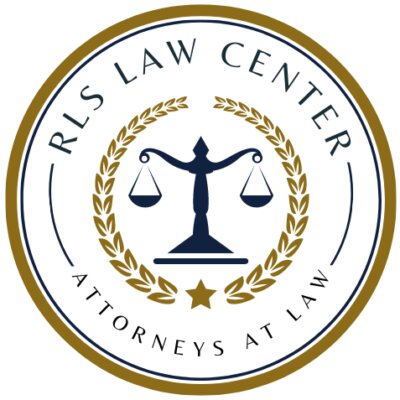Best Financial Services Regulation Lawyers in Las Pinas
Share your needs with us, get contacted by law firms.
Free. Takes 2 min.
List of the best lawyers in Las Pinas, Philippines
About Financial Services Regulation Law in Las Pinas, Philippines
Financial Services Regulation in Las Pinas, Philippines, involves the legal frameworks that govern financial institutions and transactions within the city's jurisdiction. It ensures financial stability, protects consumers, and promotes transparency and fair practices in financial markets. This field has become increasingly important due to the rapid development of financial services and products. Regulatory bodies, such as the Bangko Sentral ng Pilipinas (BSP) and the Securities and Exchange Commission (SEC), play pivotal roles in overseeing compliance with these regulations.
Why You May Need a Lawyer
There are various situations in which you might require legal advice in the realm of Financial Services Regulation. You may need a lawyer if you are:
- Setting up a new financial services business and need guidance on compliance.
- An investor seeking to understand the rules regarding investments in the Philippines.
- Experiencing disputes with financial institutions regarding loans, interest rates, or terms of contracts.
- A financial institution needing assistance with regulatory audits or investigations.
- Involved in litigation related to financial transactions or breaches of regulatory compliance.
Local Laws Overview
In Las Pinas, several laws and regulations govern financial services, including:
- Banking Laws: Governed by the General Banking Law of 2000, which defines how banks should operate, capital requirements, and the responsibilities of directors and officers.
- Securities Regulation: The Securities Regulation Code oversees securities transactions to protect investors and ensure a fair and transparent market.
- Data Privacy Act: This law ensures the confidentiality and privacy of consumer data in financial transactions.
- Anti-Money Laundering Laws: The Anti-Money Laundering Act is vital for preventing and addressing money laundering and terrorist financing.
Frequently Asked Questions
What is the main regulatory body for financial services in the Philippines?
The main regulatory bodies are the Bangko Sentral ng Pilipinas (BSP) for banks and the Securities and Exchange Commission (SEC) for securities and non-bank financial institutions.
Do financial institutions need a specific license to operate in Las Pinas?
Yes, financial institutions must be licensed by relevant authorities such as the BSP or SEC, depending on their services and products.
How can I ensure compliance with financial regulations?
Engage a legal expert specializing in financial services regulation to guide your business in understanding and adhering to applicable laws and regulations.
What does consumer protection entail in financial services?
Consumer protection involves ensuring transparency, fairness, and access to information for consumers engaging in financial transactions and addressing grievances effectively.
What are the penalties for non-compliance with financial regulations?
Penalties can range from fines, suspension, or revocation of licenses to criminal charges, depending on the severity of the non-compliance.
Are there specific laws regarding digital financial services?
Yes, the Electronic Commerce Act and guidelines from the BSP and SEC cover various aspects of digital financial transactions and services.
How do I file a complaint against a financial service provider?
Complaints can be filed with the BSP or SEC, depending on the nature of the issue, or with consumer protection bodies if it involves consumer rights violations.
Can foreigners invest in Philippine financial institutions?
Yes, but there are restrictions and requirements, often necessitating legal consultation to navigate specific regulations effectively.
How often do financial institutions undergo audits?
Audits are typically conducted annually, but frequency can vary based on institution size and risk profiles as assessed by regulatory bodies.
Are there differences in regulations for different types of financial services?
Yes, each type of financial service has specific regulations tailored to its nature, risks, and impact on the economy and consumers.
Additional Resources
For additional assistance, consider reaching out to:
- Bangko Sentral ng Pilipinas (BSP)
- Securities and Exchange Commission (SEC)
- Philippine Deposit Insurance Corporation (PDIC)
- Insurance Commission (IC)
- Local branches of law firms specializing in financial services regulation
Next Steps
If you need legal assistance in Financial Services Regulation, consider the following steps:
- Identify the specific legal issue or question you have.
- Research and reach out to legal professionals or firms specializing in financial services regulation.
- Book a consultation to discuss your needs and understand potential legal strategies or solutions.
- Gather all relevant documents and information to facilitate a more productive discussion with your legal adviser.
Lawzana helps you find the best lawyers and law firms in Las Pinas through a curated and pre-screened list of qualified legal professionals. Our platform offers rankings and detailed profiles of attorneys and law firms, allowing you to compare based on practice areas, including Financial Services Regulation, experience, and client feedback.
Each profile includes a description of the firm's areas of practice, client reviews, team members and partners, year of establishment, spoken languages, office locations, contact information, social media presence, and any published articles or resources. Most firms on our platform speak English and are experienced in both local and international legal matters.
Get a quote from top-rated law firms in Las Pinas, Philippines — quickly, securely, and without unnecessary hassle.
Disclaimer:
The information provided on this page is for general informational purposes only and does not constitute legal advice. While we strive to ensure the accuracy and relevance of the content, legal information may change over time, and interpretations of the law can vary. You should always consult with a qualified legal professional for advice specific to your situation.
We disclaim all liability for actions taken or not taken based on the content of this page. If you believe any information is incorrect or outdated, please contact us, and we will review and update it where appropriate.










